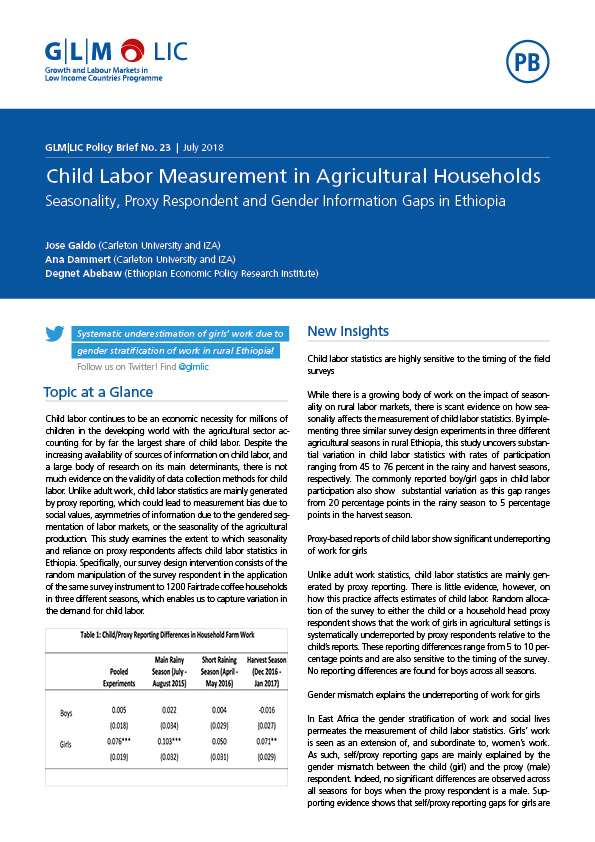Child labor continues to be an economic necessity for millions of children in the developing world with the agricultural sector accounting for by far the largest share of child labor. Despite the increasing availability of sources of information on child labor, and a large body of research on its main determinants, there is not much evidence on the validity of data collection methods for child labor. Unlike adult work, child labor statistics are mainly generated by proxy reporting, which could lead to measurement bias due to social values, asymmetries of information due to the gendered segmentation of labor markets, or the seasonality of the agricultural production. This study examines the extent to which seasonality and reliance on proxy respondents affects child labor statistics in Ethiopia. Specifically, our survey design intervention consists of the random manipulation of the survey respondent in the application of the same survey instrument to 1200 Fairtrade coffee households in three different seasons, which enables us to capture variation in the demand for child labor.
